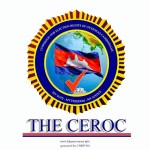Political Paradigm of Pragmatism from the Khmer Youth part 64
This part (64), Mr. Sophan Seng analysed overseas absentee voting by comparing between Thailand, Indonesia, and the Philippines.
According to IDEA, an organization focusing on Diaspora worldwide, there are more than 300 countries have included their overseas citizens to vote their home-country elections. In the ASEAN region, the record illustrated Thailand, the Philippines, Indonesia, and Lao, have included their overseas citizens. Malaysia is believed to include overseas citizens to vote in the next election.
|
Country |
Qualification of Overseas Voters |
Who/what may be voted |
Voting Method |
Voting Period |
Deadline for Receipt of Ballots |
Voting Statistics |
| Indonesia (1.36 m est. Overseas population) | A citizen, age 17th, and a registered voter | President, Vice President, Members of Parliament for electoral district of Jakarta | Voting in PersonPostal Voting | Election day | Election day | N.A. Except for The Netherlands where turn-out was 77% |
| Pillippines (7.76 m estimate overseas population) | A citizen, age 18 and a registered voter | President, Vice President, Senators and Party-List Representatives to Congress | Voting in PersonPostal Voting | 30 days for land-based voters; 60 days for seamen | Election | 65.00% |
| Thailand | A citizen, age 18 on January 1 in year of election, and a registered voter | Members of Parliament | Voting in PersonPostal | Variable subject to discretion of embassy or consulate | 6 days before election day | 39.53% (2000)35.7%
(2001) |



